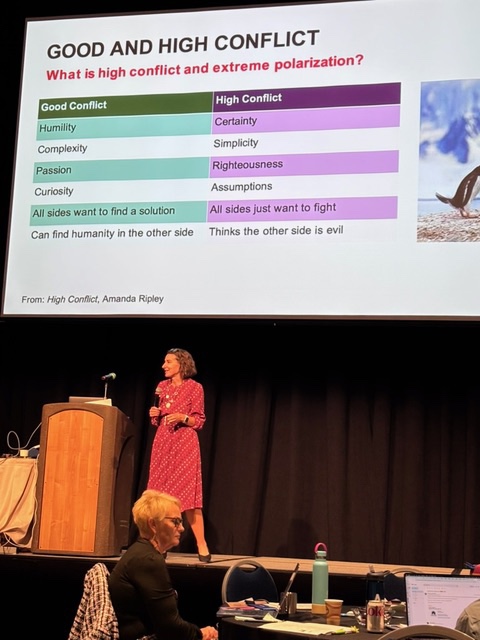Even a job performance review grounded in metrics can be meaningless, and the sugar-coated, recently-released evaluation of Denver Public School Superintendent Alex Marrero illustrates that point in glaring fashion.
That’s especially true when you contrast the Marrero evaluation with the 2020 evaluation of then-Superintendent Susana Cordova, conducted by a board that shared three members with the current panel. The Cordova evaluation was a travesty of a different sort.
Her 2020 evaluation was by turns condescending and dismissive. In the honorific-obsessed institution that is DPS, she was referred to throughout the document as “Susana.” Contrast that with the “Dr. Marreros” throughout his evaluation, and some current board members’ insistence that they be addressed as “Director” or “President” or Vice-President.”
Details like this speak volumes.
Cordova’s evaluation was completely data-free, It took issue with her leadership because she hadn’t made a clean break with the Bennet and Boasberg regimes that preceded hers, and out of which she emerged. That board seemed especially offended that Cordova hadn’t deemphasized standardized testing as a measure of student learning quickly enough.
Marrero’s evaluation is a step forward in one regard: It measures his performance against a detailed set of metrics. Unfortunately, many of the metrics seem unrelated to what should be the main mission of public schools. And the one that arguably matters most and where Marrero’s performance was the weakest – student learning – is almost entirely disregarded.
The only real hint of possible dissatisfaction with Marrero’s performance is the relatively paltry bonus he was awarded – $8,000 out of a possible $41,175 had he hit every goal.
These two evaluations are starkly different for an obvious reason: The majority of the 2020 board was eager to nudge Cordova out the door. The current board seems desperate to hang onto Marrero, twice bestowing raises and contract extensions upon him for no apparent reason.
Here’s what I wrote on Boardhawk at the time about Cordova’s evaluation:
“Much of the evaluation, and especially the sections critical of Cordova, focus on what some board members perceive as her lack of urgency to “shift the culture away from the shortcomings of the former “reform” narrative….” The board also says it worries that there is a “lingering collective mindset…This has caused friction between the BOE and the senior leadership team as the board pursues new directions.”
Less than two months after her evaluation was released, Cordova left DPS, where she had worked her entire career, for the Dallas Independent School District. In June of this year, she was named Colorado’s Commissioner of Education and returned to Denver.
Contrast that with the kisses blown to Marrero by the current board in its evaluation:
“The Board concluded that during Dr. Marrero’s time as superintendent, he has prioritized academic achievement, cultivated collaborative relationships within our school district, and championed an inclusive and positive educational environment for our students, families, faculty, and staff. Dr. Marrero has demonstrated a willingness to learn and grow as he leads. We are grateful for his dedication to Denver Public Schools.”
That’s not what many former DPS employees will tell you about Marrero’s leadership style. And bear in mind that according to the latest state standardized test results, only 14 percent of Latino students, 16 percent of Black students, and 13 percent of students who qualify for federally subsidized meals are proficient in math. Similarly, 24 percent of Latino students, 26.6 percent of Black students, and 22 percent of students who qualify for federally subsidized meals are proficient in reading.
In yet another example of how petty this board can be, some members’ biggest beef with Marrero seems to be that they resent how he hogs the spotlight. “The inclusion of Board members in celebratory events and school visits stands out as an area for improvement,” the evaluation says. “We will always appear united and collaborative if Board members are present alongside Dr. Marrero at such occasions.”
Included in the board evaluation is Marrero’s self-evaluation, an unreflective, transparently self-promotional piece of fluff. It’s 11 glossy pages highlighting accomplishments. There’s not a word about areas for growth and improvement, or lessons learned.
Last year had to be humbling for Marrero, given, among other incidents, the East High School shootings and a related (and illegal) executive session he tried to keep buried, perhaps because during it he complained that the shootings would hurt his future job prospects.
But there’s no hint he took any of the hard knocks to heart. Instead, he seems to be using his so-called self-evaluation as an opportunity to market himself for his next job, one he presumably hopes will take him to a larger city closer to his East Coast home.




